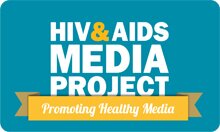2000: Durban Declaration
On 1 July 2000, the Durban Declaration signed by 5000 scientists, was released just before the 13th International AIDS Conference in Durban, clarifying the mainstream scientific view on AIDS science. The declaration stated:
"The evidence that AIDS is caused by HIV-1 or HIV-2 is clear-cut, exhaustive and unambiguous... As with any other chronic infection, various co-factors play a role in determining the risk of disease. Persons who are malnourished, who already suffer other infections or who are older, tend to be more susceptible to the rapid development of AIDS following HIV infection. However, none of these factors weaken the scientific evidence that HIV is the sole cause of AIDS…
Mother-to-child transmission can be reduced by half or more by short courses of antiviral drugs … There are many ways to communicate the vital information about HIV/AIDS. What works best in one country may not be appropriate in another. But to tackle the disease, everyone must first understand that HIV is the enemy. Research, not myths, will lead to the development of more effective and cheaper treatments, and hopefully a vaccine ..."
Presidential spokesperson Parks Mankahlana denounced the "Durban declaration" and said he hoped the conference would not descend into "Mbeki-bashing".
"If the drafters of the declaration expect to give it to the President, or the government, it will find its comfortable place among the dustbins of the office," he said. "People can't, under the pretext of meeting in Durban to discuss questions of HIV/Aids, circulate a petition all over the world condemning the President."






